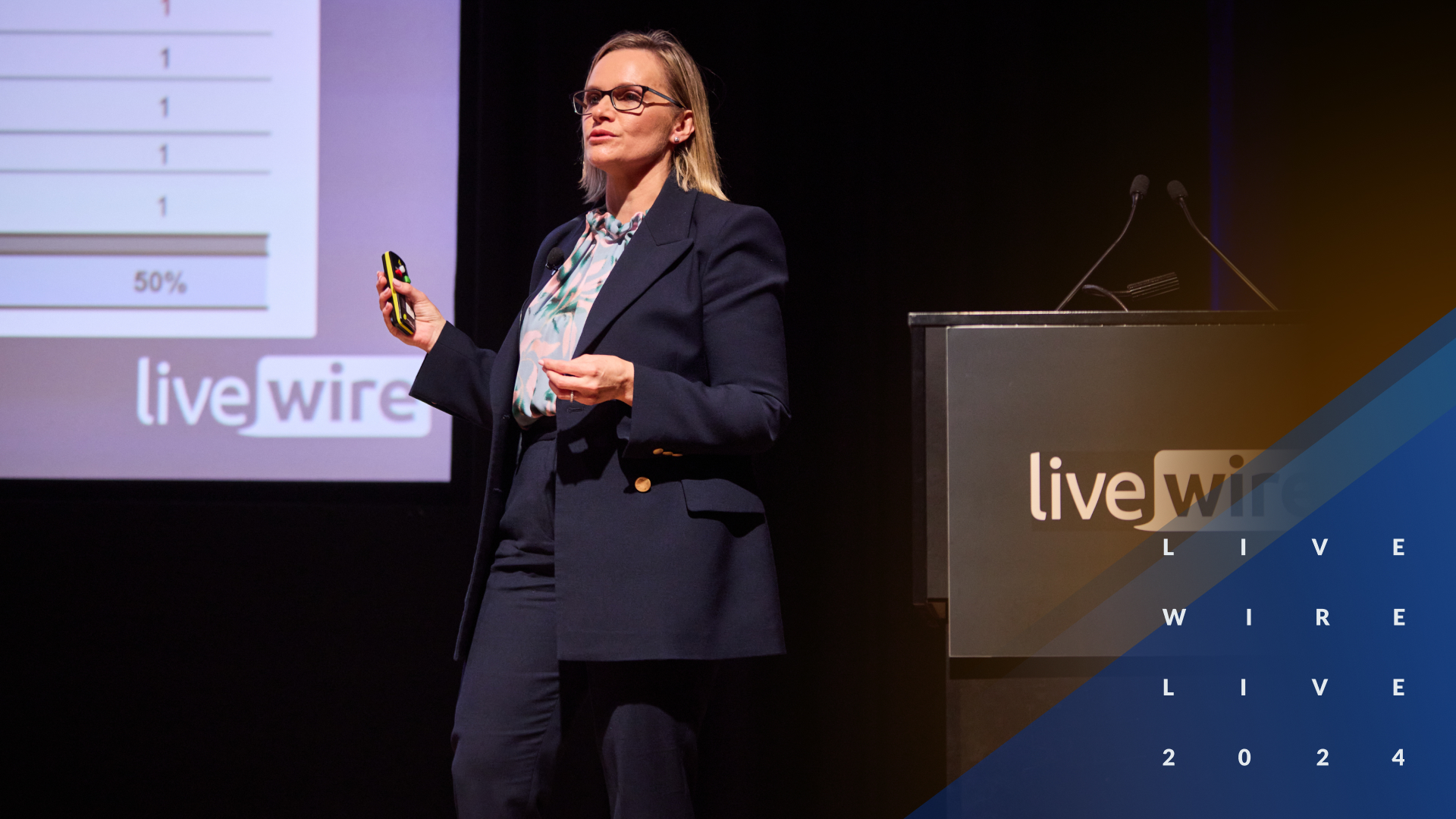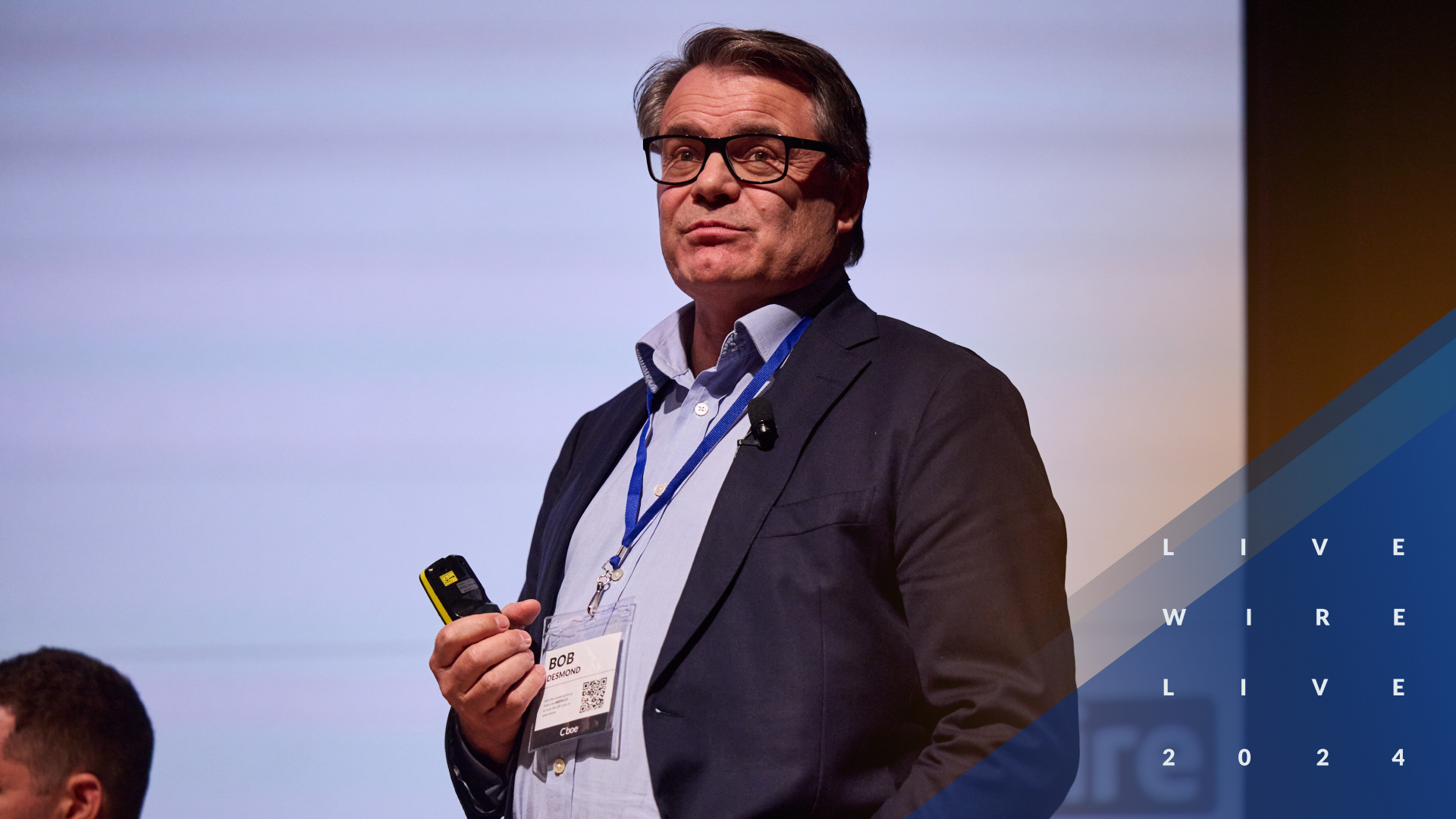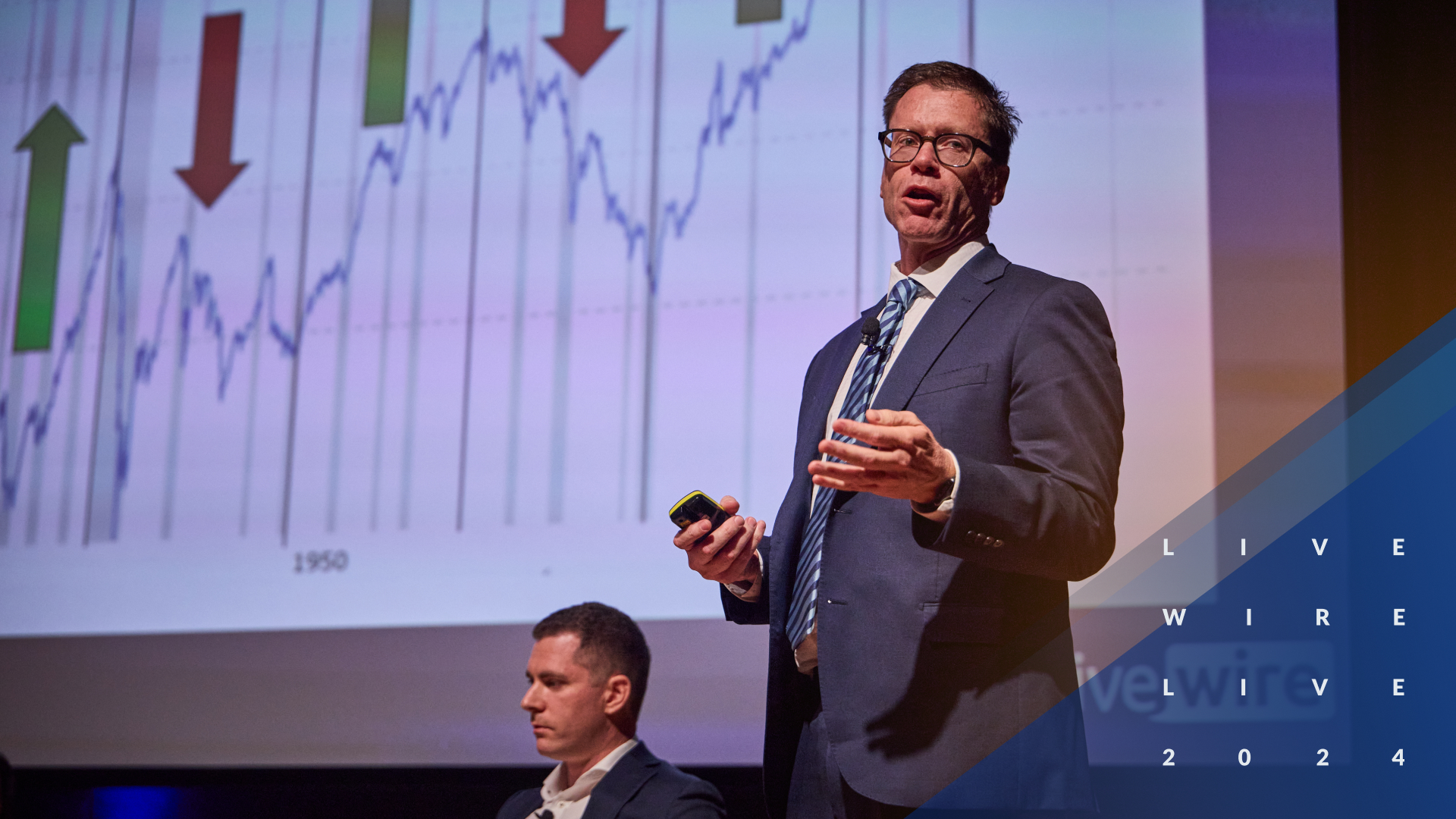5 shocking predictions for 2025 and beyond
-f_P41GnpAmS22d
It’s easy to get caught up in a herd mentality, but history shows that thinking differently can pay off in a big way.
Take Michael Burry for example. His research into the US housing market led him to successfully short mortgage-backed securities, making a huge profit during the GFC.
A less extreme and more measured approach is Warren Buffett’s contrarian approach to the market: “Be fearful when others are greedy and be greedy only when others are fearful” – noting that the legendary investor used opportunities when others fled the market to invest further in high-quality companies at a lower cost.
Looking beyond market behaviour and taking an analytical approach can help uncover a range of unexpected opportunities. So, in light of this, five experts shared their ‘shocking’ predictions for 2025 and beyond at Livewire Live. The experts are:
- Kellie Wood, Head of Fixed Income, Schroders
- Vihari Ross, Portfolio Manager, Antipodes
- Bob Desmond, Head of Claremont Global and Co-Portfolio Manager, Claremont Global
- Matthew Kidman, Chief Investment Officer, Centennial Funds Management
- Josh Clark, Portfolio Manager, QVG Capital
Prediction 1: A US sovereign debt crisis is coming
Expert: Kellie Wood, Head of Fixed Income, Schroders
You could argue we have been lulled into a false sense of security about the US and a soft landing, but Wood says the data suggests we should be concerned.
US national debt as a proportion of GDP exceeded WWII in 2020 and is projected to exceed 192% by 2050, fuelled primarily by spending on major healthcare programs and net interest payments.
"By 2031, America's medical hospital trust will be insolvent - gone. By 2033, the Social Security trust fund will be gone," she says.
Wood argues that US debt and interest payments will become unsustainable if the US government and Federal Reserve don't run a very tight economy.
Wood tips four different scenarios for a US sovereign debt crisis: growing debt, a default, a default-induced downturn and a recession with a default. The latter two have serious implications for global markets. While the Federal Reserve has been able to protect the US in the past, it has rapidly reached the point of few tools left in the arsenal – the US is highly vulnerable to future shocks.
From an investment perspective, should the worst occur, investors should aim for European or Australian equities and credit markets and invest outside of the US Dollar. Government bonds will be weaker initially but supportive over the longer term. She also advocates active investing over passive options.
"You will need more inflation protection in your portfolio: inflation-linked bonds, commodities like gold, real assets like real estate," says Wood.

Prediction 2: The energy transition will be the investment cycle to power the next decade
Expert: Vihari Ross, Portfolio Manager, Antipodes
The world is spending a lot of time considering the potential of AI, but perhaps we should be thinking beyond this to the infrastructure and energy requirements to run this.
According to Ross, we aren't paying enough attention to the potential of the energy transition. Our world is also energy-hungry and only demanding more to feed data centres, reshoring manufacturing, EVs and charging infrastructure, the emerging middle-class, heatwaves, electrifying the grid and fuel, transport and renewables.
It’s also no flash in the pan if you look at national spending on this. The US is spending $3 trillion, European nations are collectively spending $4.6 trillion and China is spending $10.3 trillion alone. China is already leading the way in terms of wind and solar installation with 475 gigawatts installed annually and will reach 40% renewable by 2025.
"That is cumulatively $18 trillion we need to spend and that's just to reduce our carbon footprint by 25%," says Ross.
Wind and solar are doing the heavy lifting, and the spending is incentivised by government policy. For example, the Inflation Reduction Act, the Chips Act, and the Infrastructure Investment and Jobs Act. Corporations are also supported by these policies.
From an investment perspective, Ross encourages investors to look across the entire value chain, from enabling materials like copper/aluminium, to renewable generation and enabling technologies such as automation or fuel cells. Some companies she cites include Alcoa (NYSE: AA), Ameren (NYSE: AEE), Nari Technology (SHA: 600406), Hyundai (KRX: 005380) and Siemens (ETR: SIE).
As a trend note, Ross notes investors have gotten excited about electric vehicles.
"You don't need to overpay for exposure," she says, pointing to Hyundai's valuation compared to Tesla (NASDAQ: TSLA) which also has hybrid exposure - gaining market share due to a lack of EV infrastructure.

Prediction 3: The peak of AI hype is now
Expert: Bob Desmond, Head and Co-Portfolio Manager, Claremont Global
"Some of the biggest money comes from the things that no one is talking about" is how Desmond introduced his shocking prediction presentation.
There’s a lot of excitement over the potential of AI, just like other transformative technology in the past, such as the internet, or even going back further, railroads. While Desmond believes AI will create permanent change, he also argues it is following the capital boom/bust cycle.
"It's a structural thing for all of these booms. Capital comes in, you can't ignore the capital cycle," says Desmond.
If you look at one of the stars in the dot com crash, Cisco Systems (NASDAQ: CSCO) generated a return of over 2500% between June 1995 to June 1999, falling 2000% by June 2001. Similarly, the star of the AI boom, Nvidia (NASDAQ: NVDA), has tracked just under 2500% returns from June 2019 to now – a very similar trajectory if you map their performance against each other.
"I don't know how lucky you feel you are, you're saying history won't repeat," Desmond says to those who don't look at Nvidia's heights and similarities to Cisco and feel nervous.
He believes we are currently sitting at the peak of inflated expectations based on the Gartner Hype Cycle - things will start to plateau from here. Investors should be looking at buying quality growth now - it will start to outperform once the AI boom falls.
"This is a time to be very cautious. Be careful about buying into the higher prices. It's peak AI. It's time to buy quality growth," says Desmond.

Prediction 4: Thematic investing will perpetually underperform
Expert: Josh Clark, CFA, Portfolio Manager, QVG Capital
There's always a theme in markets, bigger ones such as AI and energy sitting alongside lesser-known hypes such as marijuana and milk (dairy farms).
Thematic investing has become increasingly popular, but Clark suggests that investors will be disappointed in the long run.
"It's a simple tangible idea and you can see that thematic playing out in the real world," says Clark, explaining why people tend to get swept up in thematics, and it becomes a herding behaviour.
He notes that such investments tend to be linked to the capital cycle, and investors can lose out.
Take the dot-com bubble as an example of a theme. Major stock Google/Alphabet (NASDAQ: GOOGL) was only listed after the bubble, while 52% of the internet stocks in the bubble no longer existed by 2004.
Where it gets more pointed is when you look at the data.
Across January 2017 to April 2023, the Morningstar US Market Index returned 10.60%, while an average of thematic funds generated 7.20%.
Or looking at one of thematic investing’s greatest advocates, Cathie Wood’s Ark, generated an annualised return of 6.61% and lost 69.47% in its greatest drawdown, whereas stock picker (and quality advocate) Warren Buffett’s Berkshire Hathaway has generated 14.46% annualised and lost 23.08% in its greatest drawdown.
What does this all mean for investors?
"If you aren't looking at sustainable competitive advantage as your first port of call, you are just getting distracted," Clark says.
Clark recommends investors avoid thematic investments and gain their exposure through options like indices – which can dilute some of the problems – or consider active stock pickers with skill in identifying likely winners. Or you could take a contrarian approach and invest with managers who can profit from overvalued thematics.

Prediction 5: A structural bear market is looming
Expert: Matthew Kidman, Principal & Portfolio Manager, Centennial Asset Management
"What you would know as a bull market is a market that has risen up 20% from the bottom and a bear market is a fall by 20%," says Kidman, but there's a difference when it comes to a structural market cycle.
We've experienced four structural bull markets in the last 100 years and 3 structural bear markets. Kidman uses the Dow Jones because it is the longest available index and based on this, the average bull market lasts 14.6 years (with the shortest 8 years 10 months), while the average bear market is 15.1 years (with the shortest 9 years).
Despite the volatility and panicking about recessions, we’ve been in a bull market for 15 years, 5 months which started after the GFC found a bottom in 2009. For those questioning falls during COVID-19, Kidman argues this was simply a correction when you map it out.
"I think we're in a cyclical bull market where interest rates are being cut. The next two or three years will be very very good for markets on the record. So you've got another leg up, but we're very late in the structural cycle" says Kidman, warning a structural bear market is coming and it will be hard to make money in that period.
"You'll have to play defence, very few assets will work," he says.
"Cash will probably be the only asset class that sees its way through properly."

There you have it - 5 shocking predictions. Will you be investing based on any of these? Let us know in the comments.
4 topics
5 stocks mentioned
5 contributors mentioned



